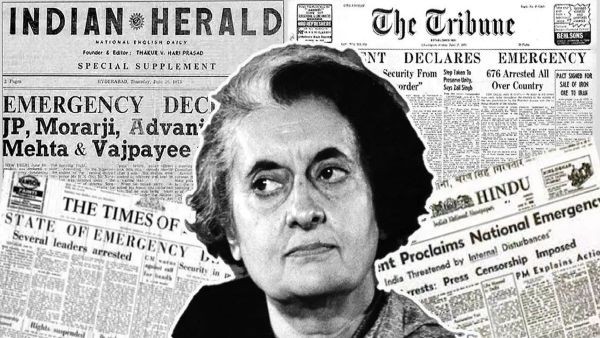
June 25, 2025 — Today marks the 50th anniversary of the Emergency, a period widely regarded as one of the most turbulent chapters in India’s democratic history. On June 25, 1975, then Prime Minister Indira Gandhi declared a state of Emergency, suspending civil liberties, censoring the press, and jailing thousands of political opponents. The proclamation lasted 21 months, until March 1977.
To commemorate the milestone, the Government of India has officially designated June 25 as ‘Samvidhan Hatya Diwas’ (Constitution Murder Day), aiming to preserve the memory of the era and reinforce the importance of constitutional values.
Nationwide Observances and Events Union Home Minister Amit Shah flagged off the ‘Long Live Democracy Yatra’ from Delhi’s Thyagaraj Stadium, the centerpiece of a series of events organized across the country. The yatra will travel nationwide, promoting awareness of democratic rights and the lessons learned from the Emergency.
The Delhi event featured a special exhibition on Indian democracy, a dramatic performance by the National School of Drama, and a short film capturing the impact of the Emergency on civil society and institutions. Attendees included Railway Minister Ashwini Vaishnaw, Culture Minister Gajendra Singh Shekhawat, Delhi Lieutenant Governor Vinai Kumar Saxena, and Chief Minister Rekha Gupta.
Voices from Leadership Prime Minister Narendra Modi, in a statement on social media, called the Emergency “one of the darkest chapters in India’s democratic history,” emphasizing that “no Indian will ever forget the manner in which the spirit of our Constitution was violated”.
Amit Shah echoed this sentiment, stating that the Emergency was a “murder of democracy” and a reminder of how far political power can go unchecked.
Historical Context The Emergency was declared following a ruling by the Allahabad High Court that found Indira Gandhi guilty of electoral malpractice. Facing mounting opposition and civil unrest, she invoked Article 352 of the Constitution, citing “internal disturbance.” The move led to mass arrests, forced sterilizations, and widespread censorship.
Legacy and Reflection While the Emergency ended in 1977 with the defeat of the Congress party in general elections, its legacy continues to shape India’s political discourse. The 50th anniversary serves not only as a remembrance but also as a call to safeguard democratic institutions and civil liberties for future generations.
As exhibitions, discussions, and public tributes unfold across the country, India pauses to reflect—not just on what was lost, but on the resilience that followed.
